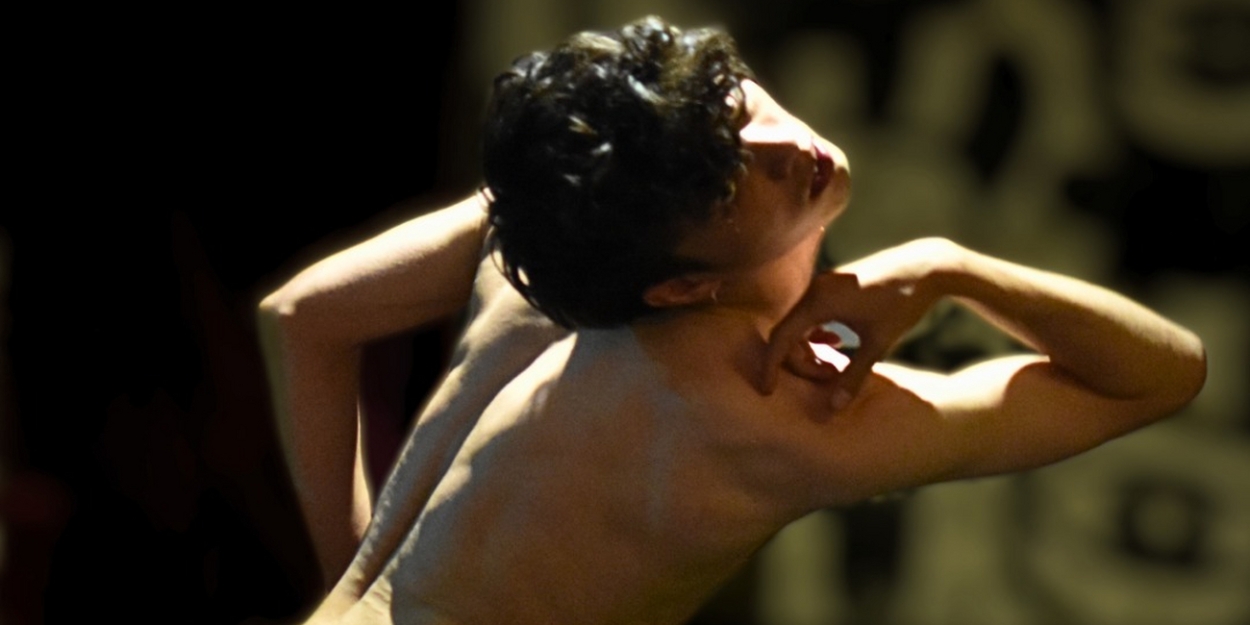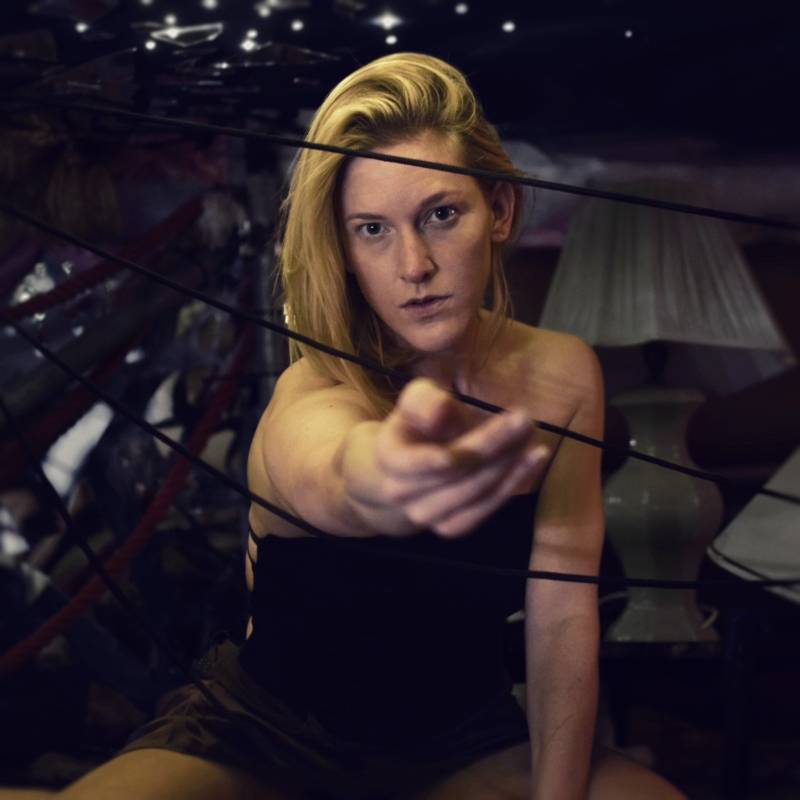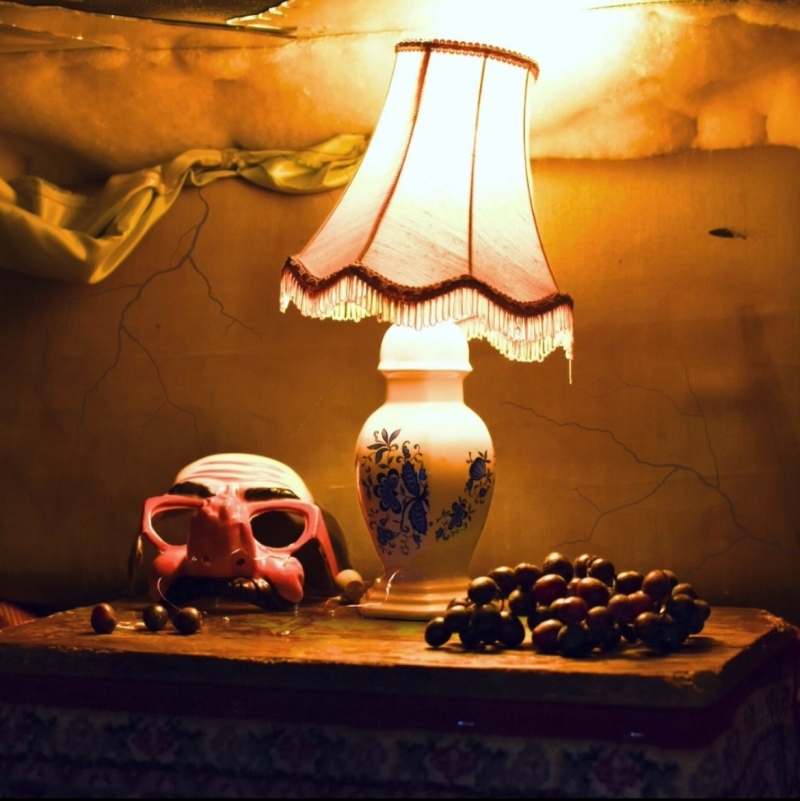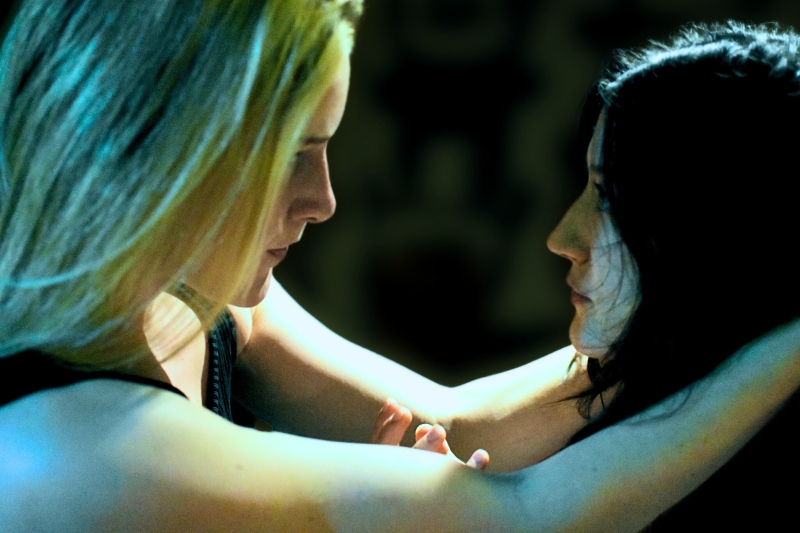Interview: 'It's a Real Sensory Experience': Sebastian Huang and Maya McQueen on Hot Tubs, Immersive Theatre and Creating BACCHANALIA
'Everyone's bringing their own artistic thing into the room, which is really great for us to see, really satisfying'

CRYPT, one of London’s newest venues for immersive theatre, will soon play host to Bacchanalia, “an intense and intimate re-imagining of The Bacchae by Euripides.” The show, boasting alumni from immersive experiences like Punchdrunk’s The Burnt City and Phantom Peak, takes 40 audience members into the world of the Ancient Greek story through the lens of the 1960s.
BroadwayWorld spoke with two members of the creative team behind Sleepwalk Immersive - Sebastian Huang, Artistic Director, and Maya McQueen, Associate Director. We discussed what it was like to develop not only Bacchanalia but their own company and why they believe immersive theatre is so appealing to audiences.
How did you first come up with the idea for Bacchanalia?
Sebastian: So about four and a half years ago, as part of a school project that I was doing, I created a one man, one audience performance in Brixton, which was based around Dionysus and Demeter and the mystery cults in ancient Greece. And then from feedback, I decided to turn it into a bit of a bigger project. I was actually studying The Bacchae at the time, and I thought, “Okay, well, these two can just go together!” So that was about four and a half years ago. And then from there, we’ve just been slowly working on it until it’s got to the point where it is now.

Maya: And we all met each other, and that's when you presented this idea that you had to us. We slowly started developing it all together, like, “Hang on, let's actually do this. Let's sit down and make the show.” And we made a R&D this time last year, which was about a 25-minute version of the show, where we thought about the opening, the ending and characters and first started delving into that.
Sebastian: I think we did eight shows in ten hours. So then, luckily enough, the people from CRYPT came to see that, and then contacted us a few months later to talk about this run. Now we're here!
What has the creative process for Bacchanalia been like?
Sebastian: It's been an endeavour! So it was just me working on it for a few years, but that was just me playing around with ideas. It wasn't really until we formed the company, and I met these lovely people where it really started kicking, when we started actually getting somewhere with it. But we've taken our time. Now we're in the thick of it, we're really appreciating how much time we took over the last two years to get the creative side to this point. There's been a lot of experimenting, messing around in people's basements trying to figure out what works and what doesn't. But now we’re in rehearsals with the full cast, which is just the best! We've been so lucky.
Maya: Yeah, it's been really great. Especially for us, taking all that time, we all feel, as a creative team, we have such an in-depth idea of many different versions of this show and the story and the world around it. So it's been really great to come into the room now and share that with people. The cast are so interested in the information, in the world, and everything's very character-driven. And in particular, it’s been great because we've got all of our experiences as a creative team and we've come into the room with creatives who have experienced all different areas in the field. You've got people who are dancers, more traditional actors, people with experience in puppetry, in music . . . Everyone's bringing their own artistic thing into the room, which is really great for us to see, really satisfying.
How did you start Sleepwalk Immersive?
Sebastian: In a hot tub!
Maya: [Laughs] Yeah!
Sebastian: So we started playing around with the show and ideas for Bacchanalia and stuff like that. And then we were just chilling in a hot tub one night, and we're like, “Well, why don't we actually just form an actual company?”
Maya: At like 5:00 AM, us being like, “Yeah, we love this idea! Hang on, maybe we should make a real company and actually organise ourselves and put this on, because we're all very passionate about the idea.”

What is it about immersive theatre that you think makes it so appealing?
Sebastian: I think it's the ability for a performer to connect with an audience member on a truly human level that you just don't get with other forms of theatre. It's the fact that you can be in a room with someone standing right there. I think it opens itself up to a deeper connection with the audience. And it's very versatile. Immersive . . . I feel it's quite an umbrella term. There's lots of different styles of it and a lot of different kinds of works coming out. There's so many different branches that you can go out and see.
Maya: I think the way it uses your senses as a form of theatre is just completely different, because so much of it draws from site-specific theatre. So where you are, no matter the style of immersive, just being in the middle of that room, and the smells and sounds and the lighting being encapsulated around you. It just really enters you into this whole body sphere that isn't just sitting back and watching something from afar.
Sebastian: It’s a real sensory experience.
Maya: Your whole body is participating in it, which makes it really special.
And what experiences did you both have in immersive theatre before Bacchanalia?
Sebastian: We're very lucky to be a part of a generation who have grown up with this form of theatre. I think the first thing I saw that was immersive, I was about ten or eleven - instantly hooked. It's so addictive.
Maya: For me, I was about sixteen. But I saw my first thing and instantly was like, “Oh, I love this. Now I want to see every other thing that's within this umbrella, figure out what I like.” It's very thrilling, almost obsessive. [Laughs]
Sebastian: Yeah, it turns into a game almost - you’ve got to complete it! You want to go see everything. You want to see every single scene, every character.
Maya: And then we're both interested in theatre and started working in the theatre industry, specifically in immersive, which is how we all met each other.

Can you go into a bit of detail about the plot of Bacchanalia?
Sebastian: Yeah! Don't want to give too much away, but it was written about 2,500 years ago...So we’re trying to do our best to maintain the core narrative of what Euripides wrote. But at the same time, we've definitely taken some liberties creatively to fit what he made into what we want to make, what we want to say. So it's about Dionysus - he's returning to Thebes, where he's from, and his cousin, the young king, or Mayor, in our version, Pentheus, is denying Dionysus’s godhood. He's leaving him out of his prayers, he's telling his people not to worship him and obviously, Dionysus isn't the biggest fan of that. So he has a lot to say about that. But you'll see when you come to the show!
What do you hope audiences take away from Bacchanalia?
Sebastian: I would just want them to have a good time. I think that's the most important thing, a part of creating it - are audiences going to enjoy this if you strip away any messages or themes we're trying to convey? The real objective of this is just to show people a good time. It's been a while since a young company has tried to make this form of work to the extent we are. So yeah, we want to give them a good time, but this is also kind of our big, “Hi, we’re Sleepwalk, this is what we do,” so we want to convey who we are and show people that kind of work we do.
Maya: Yeah, I also think a lot of Greek tragedy work takes the themes of justice by presenting as opposed to trying to make the audience take a particular side. So I feel like for people coming to the show, a lot of it is about these polar opposites societies, the way that Dionysus and the Maenads live and the way that Pentheus and Thebes live the polar opposites of each other. We want the audience to be presented with something as opposed to being told this is right or wrong, and they can make their own judgement on it from that, because I think that's what a lot of traditional Greek theatre is about.
And finally, how would you describe Bacchanalia in one word?
Sebastian: Sensory. We like to play a lot with the different senses and how they can be impacted. Especially with our audience members, we like to take away certain senses and play around with that. So I think it's a very sensory-based show.
Maya: Theatrical.
Sebastian: We have some quite diverse content - I don’t think it’s all one tone. Depending on what characters you see or what rooms you’re in, that one word would change depending on the way you experience it.
Bacchanalia is at the CRYPT in Bethnal Green on various dates from Sunday 12 November
Comments
Videos

